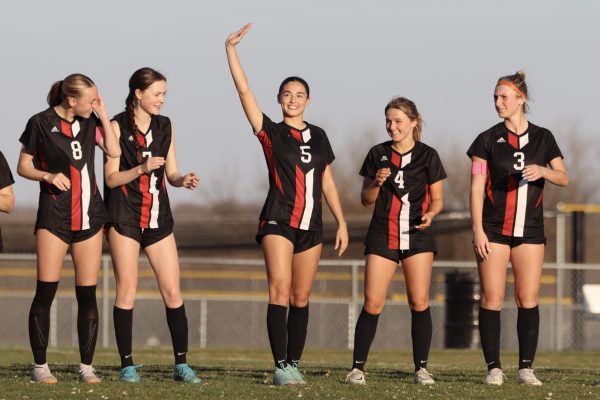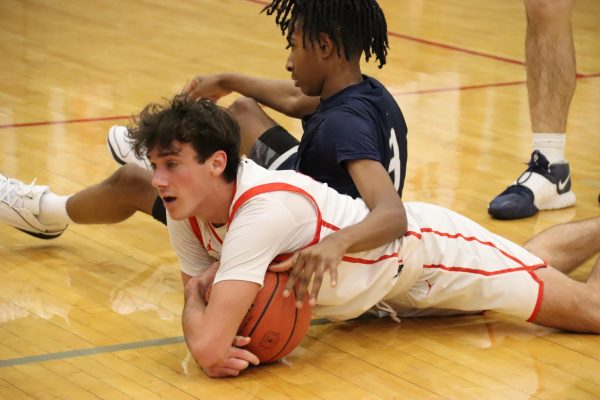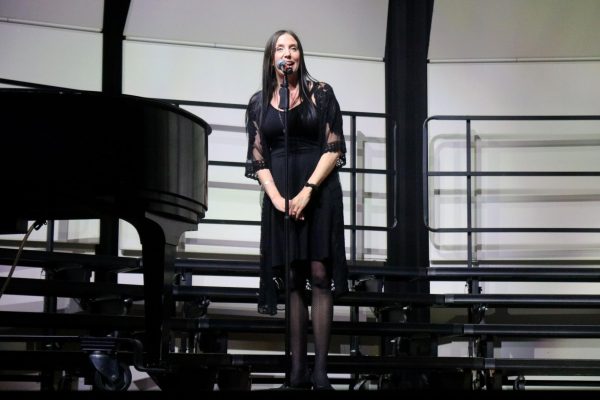Consideration For All
Schedule conflicts with religious holidays present unique problems for students
Living in the Johnson County bubble can be a cookie cutter experience. At BV West however, there is a very diverse student body. This can make scheduling around holidays for different religions, a difficult task.
Christianity is the most prominent religion in Johnson County, with a 50% adherence, according to City-Data.com. Due to this majority, students have a break from school and school related activities during any major Christian holiday. Local public schools have a large break surrounding the holiday of Christmas, and Easter is always on a Sunday, automatically preventing any school conflicts.
“I would say that when you have a prevalent religion and it’s as large as Christianity, it’s going to be built into the calendar almost by default,” senior Yasmin Jarik, said.
Religions such as Judaism, Islam, Hinduism, and Buddhism remain widely practiced around the nation, yet none of those religions’ more important observances are built into holiday breaks in our community. The majority of the time, students practicing other religions do not get even the convenience of scheduling extracurricular events around important holidays.
Schools in our area are often given calendars explaining holidays in hopes of avoiding scheduling conflicts. However, some teachers don’t actually receive the calendar and are left uninformed about these significant days.
There is a significant Muslim student population at our school. At the beginning of September, the three-day Muslim holiday, Eid al-Adha, one of the most important observances of the year, occurred. Many Muslim students reported they missed multiple tests and quizzes to participate in their celebration.
“There is no policy that states ‘you will do this’ to teachers, but [there are] guidelines and directives that we’re asking our teachers to honor,” assistant principal Bryan Brutto said.
Although a guideline is a step forward, it’s still difficult for students to balance school and religion without an actual policy defending them. The lack of a recognition of varied religions holidays relays a message of ignorance within the school and becomes a burden to students who follow minority religions. As long as there is still room for improvement, such as implementing a written policy, BV West’s efforts are simply not enough.
“You have to also consider that there are some students that don’t want to put it in the extra time, especially on a day of faith; you want to worry about worshiping or doing whatever is good for you to satisfy your spiritual needs as opposed to getting your chemistry homework done.” Jarik said.
Jarik isn’t necessarily angered at the administration but does feel there should be policies that the teachers need to follow in order to protect students of other religions.
Marvin Szneler, the Executive Director of the Jewish Community Relations Bureau/American Jewish Committee, works to find solutions to scheduling conflicts and address the lack of awareness among administration about Jewish holidays. Szneler provides a calendar of all Jewish holidays to every school in the Kansas City metro area.
“Teachers and administrators are committed to not only providing a positive experience for each and every student, but also avoiding conflicts, where a student is asked to choose between a school event and their religious obligations.” Szneler said. “I think providing information about holidays to schedulers is critical to helping them avoid conflicts, as it is difficult to know every holiday of every faith.”
The lack of discussion between administrators and teachers and the lack of enforcement of the verbal policy regarding communication with students creates discrimination against students of minority religions. District administrators should seek out calendars for all religions when creating the school calendars.
“We can bring awareness to other religious holidays by contacting churches, temples, mosques, or other religious buildings, as well as asking students about that too,” said Ilexa Axelrod, president of the Jewish Student Union.
Our school appears committed to helping these students but a set policy is needed to protect these students and their religious beliefs. The school isn’t directly trying to oppress minority religions but because of the unintentional ignorance and the lack of an enforced policy, this issue becomes a hardship for many students.
“I think at the end of the day personally it’s not a feeling of oppression or resentment it’s just a feeling of – you know you’re not being actively oppressed and you know nobody wants you to have a hard time but at the same time you still feel the sense of burden.” Jarik said.












